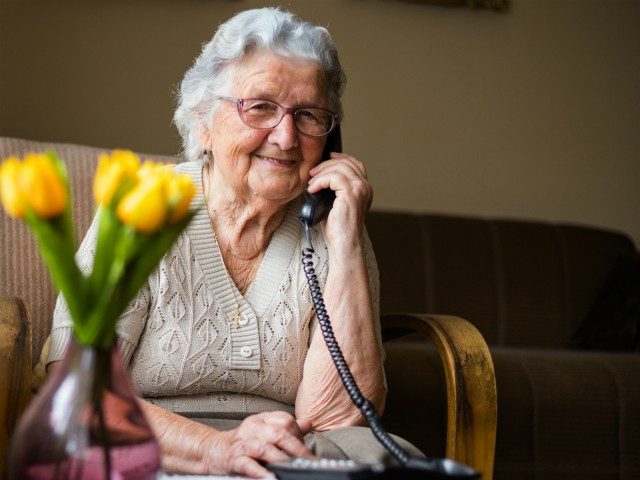Robocall scammers have begun targeting the elderly with fake Medicare calls, with 36 million scam calls reported in January. Medicare recipients are advised to never divulge their private information to anyone but their “doctor, pharmacist, hospital, health insurer, or other trusted healthcare provider.”
Business Insider reports that senior citizens are frequently receiving unsolicited phone calls from con artists posing as representatives of Medicare. Over 36 million Medicare robocalls were sent to US phone lines in January 2023 alone, and the true total may be far higher. These calls aim to steal the victim’s identity and rack up charges to Medicare as part of a larger scheme to defraud taxpayers and the federal government.
The trend has been noted by Aaron Foss, the CEO and founder of Nomorobo, a premium service that screens calls to shield users from ever speaking to phone scammers. Additionally, Nomorobo has amassed a collection of 350,000 “honeypot” or fake phone lines for the sole purpose of receiving spam calls. These honeypots offer insightful information on how robocalling scams function and how to avoid them. Although response rates are low, the schemes are affordable and efficient. Companies call millions of phone lines in an effort to engage with a small percentage of uninformed people, typically preying on the elderly.
The biggest obstacle to stopping these scams is that call spoofing, a serious issue in the world of phone spam, makes it simple for con artists to alter the apparent origin of their calls. Beneficiaries have been advised not to ever divulge their Medicare numbers unless it is with their “doctor, pharmacist, hospital, health insurer, or other trusted healthcare provider.” according to the Centers for Medicare & Medicaid Services.
When caller ID was first made available, AT&T was the only provider with a system that allowed users to enter anything as their caller identification. However, the government deregulated the telecom sector, which ultimately reduced the utility of caller ID and made it simple for con artists to exploit the system.
In 2021, the Federal Communications Commission introduced STIR/SHAKEN protocols in an effort to address the issue of spoofed robocalls. This reduces the overall number of robocalls by checking a user’s caller ID. Scammers can still forge numbers, though, and they have started to target “bigger” scams like Medicare or bank fraud that have the potential to bring in large sums of money.
The Federal Communications Commission mandates that gateway providers make use of a “reasonable Do Not Originate” (DNO) list, which is a database of phone numbers that are only ever used for inbound calls, such as 911 or the IRS hotline, as another method of thwarting some of these scams. To combat spam calls, telecom companies are allowed to use this list. As a result, the provider will drop any call with a caller ID from one of the numbers on the DNO registry.
Adding the 1-800-MEDICARE line to the DNO registry would be the simplest way to stop Medicare fraud. This would make it impossible for scammers to impersonate the official hotline and would prevent them from convincing their target to check their caller ID that they are from Medicare. “Nobody should be able to make calls from there,” Foss said. “These criminal organizations have just had free roam of the phone network and that’s why we have this problem, so we at least have to put some speed bumps. We at least have to make their job more difficult. DNOing 1-800-Medicare is very simple, very straightforward, and should be should have been done a while back.”
Read more at Business Insider here.
Lucas Nolan is a reporter for Breitbart News covering issues of free speech and online censorship. Follow him on Twitter @LucasNolan


COMMENTS
Please let us know if you're having issues with commenting.